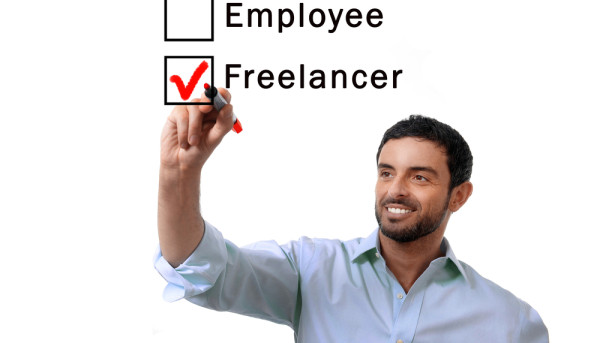How a DUI Affects Your Auto Insurance Premiums
How a DUI Affects Your Auto Insurance Premiums
Getting arrested for driving under the influence of alcohol or drugs is a serious crime. It can lead to steep fines, jail time and a license suspension.
A DUI also makes you a risky driver, and that’s why car insurance companies charge you significantly more to insure you. This is because you’re a high-risk driver and have a history of accidents and other violations.
1. You’ll Be Charged with a Criminal Offense
If you’re caught driving under the influence, you’ll face criminal charges and other penalties. These consequences can include a fine, loss of your driver’s license and higher auto insurance premiums for years to come.
A DUI is the legal term for driving under the influence of alcohol or drugs, and it’s also referred to as a DWI in some states. The laws that determine whether you’re under the influence differ from state to state, but in general, a DUI conviction is based on your blood alcohol concentration (BAC) being.08% or higher.
In most states, a DUI stays on your record for at least three years. How long it will affect your insurance rates depends on the state and your insurer’s lookback period for driving records.
2. You’ll Have to Pay a Fine
Driving under the influence of alcohol or drugs has serious consequences, both criminal and financial. For example, a conviction can disqualify you from job applications, impede your ability to find housing or scholarships, and prevent you from obtaining a loan.
Drivers who are convicted of DUI often pay much higher car insurance rates than other drivers. In fact, according to MoneyGeek’s data, New York drivers who get a DUI pay an average 74% more for full coverage car insurance than those with no such violations.
Fortunately, there are things you can do to keep your auto insurance costs down after a DUI conviction. First, compare quotes from multiple insurers every time your policy renews.
3. You’ll Have to Take a Defensive Driving Course
If you’ve been ticketed for a DUI, the court will probably require that you take a defensive driving course. These courses can help you become a safer driver and lower your insurance rates.
You can usually complete a defensive driving course in a classroom or online. If you decide to take a defensive driving course in person, you can expect the class to be about 6 hours long.
A defensive driving course will teach you how to recognize hazards and other road users’ actions. It will also cover how to react quickly to avoid an accident. Most courses will also cover state-specific traffic laws and statistics about crashes, DUIs and more.
4. You’ll Have to Pay a License Suspension
A license suspension is a period of time when you can’t drive. It usually ends when you pay the appropriate suspension termination fee.
Drivers who are convicted of driving under the influence (DUI) or driving while intoxicated (DWI) will typically receive a license suspension. The length of a license suspension will vary depending on the offense and the state.
A DUI can cause a significant amount of financial strain for drivers. This includes fines, court fees, and other costs related to the DUI charge.
5. You’ll Have to File an SR-22 or FR-44
In some states, a DUI conviction can raise your car insurance premiums up to 80%. That’s why it’s important to be honest with your insurance company about your driving record and ask them how they will treat you before you renew your policy.
You might be required to file an SR-22 or FR-44, which is a form that certifies you have the minimum liability coverage requirements in your state. This will help the DMV keep track of your coverage, which is essential if you want to reinstate your license.
SR-22s and FR-44s are only required for a few years, so you should see your rates go back down after that. However, be sure to practice safe driving habits and maintain continuous coverage to avoid a future rate hike.
6. You’ll Have to Pay a Fee
If you’ve been convicted of a DUI, you’ll likely have to pay a fee to get your car insurance coverage back. This is because most drivers who get a DUI are considered high-risk.
As a result, your insurance premiums are likely to be much higher than they were before you got a conviction. And, depending on your insurance company, these rates can last for a number of years.
Fortunately, there are ways to reduce these rates and keep them from rising. You can avoid getting additional traffic violations, drive carefully and compare quotes to find the best deal.
7. You’ll Have to Renew Your Policy
Driving under the influence (DUI) or driving while intoxicated (DWI) is a serious criminal offense that can have significant consequences, including a hefty increase in your auto insurance rates. These changes will vary from state to state and can affect your current policy as well as any future policies you apply for.
The length of time your DUI stays on your record and how far back insurance companies can look when setting your premiums are key factors that determine how long your rate hike will last. It’s not uncommon for a DUI to remain on your record for up to five years.
The best way to combat the spike in your auto insurance premiums after a DUI is to shop around for new quotes every time you renew your policy. You’ll want to compare companies that offer affordable and high-quality coverage.
8. You’ll Have to Pay a Fee
If you have a DUI on your driving record, you can expect to pay higher insurance premiums. This is because insurance companies view drivers who have had a DUI as high-risk.
Fortunately, there are ways to lower your auto insurance rates after you’ve been convicted of a DUI. The first step is to compare car insurance quotes and see what the different companies have to offer.
You should also keep a clean driving record and avoid additional accidents or citations. These will only reinforce the insurer’s view that you’re a risky driver.
9. You’ll Have to Pay a Fee
A DUI (driving under the influence) is a serious offense, and can have a huge impact on your life. Not only will you have to pay a fine and deal with a criminal record, but your insurance premiums could skyrocket, too. In fact, your car insurance company might even deny you coverage if they can find the slightest trace of alcohol in your system. You can avert a spike in your premiums by shopping around for the best rates. It’s also a good idea to improve your credit score, because many auto insurers use specialized credit scores in their calculations. The best way to do that is to keep an eye on your monthly bills. You can also ask your doctor to recommend a good debt management program or an online budgeting tool. A good debt management plan can help you avoid high interest payments and reduce your debt to income ratio.
10. You’ll Have to Pay a Fee
One of the most serious consequences of a DUI conviction is an increase in your auto insurance premiums. These rates are usually much higher than a driver with no violations or accidents would pay, and they can be a significant part of your overall monthly expenses.
You can expect an average rate hike of 74%, but that may vary depending on where you live and your state’s insurance laws. It’s also important to keep in mind that your driving record will stay on your insurance records for a long time.
When setting your rates, most insurance companies look back at the past 3-5 years of your driving record to determine your premiums. This is called the “look-back period.” However, insurance providers are allowed to go back further for major violations like a DUI. Therefore, a DUI conviction could remain on your record for as many as 10 years, which is why it can have such an effect on your insurance premiums.










